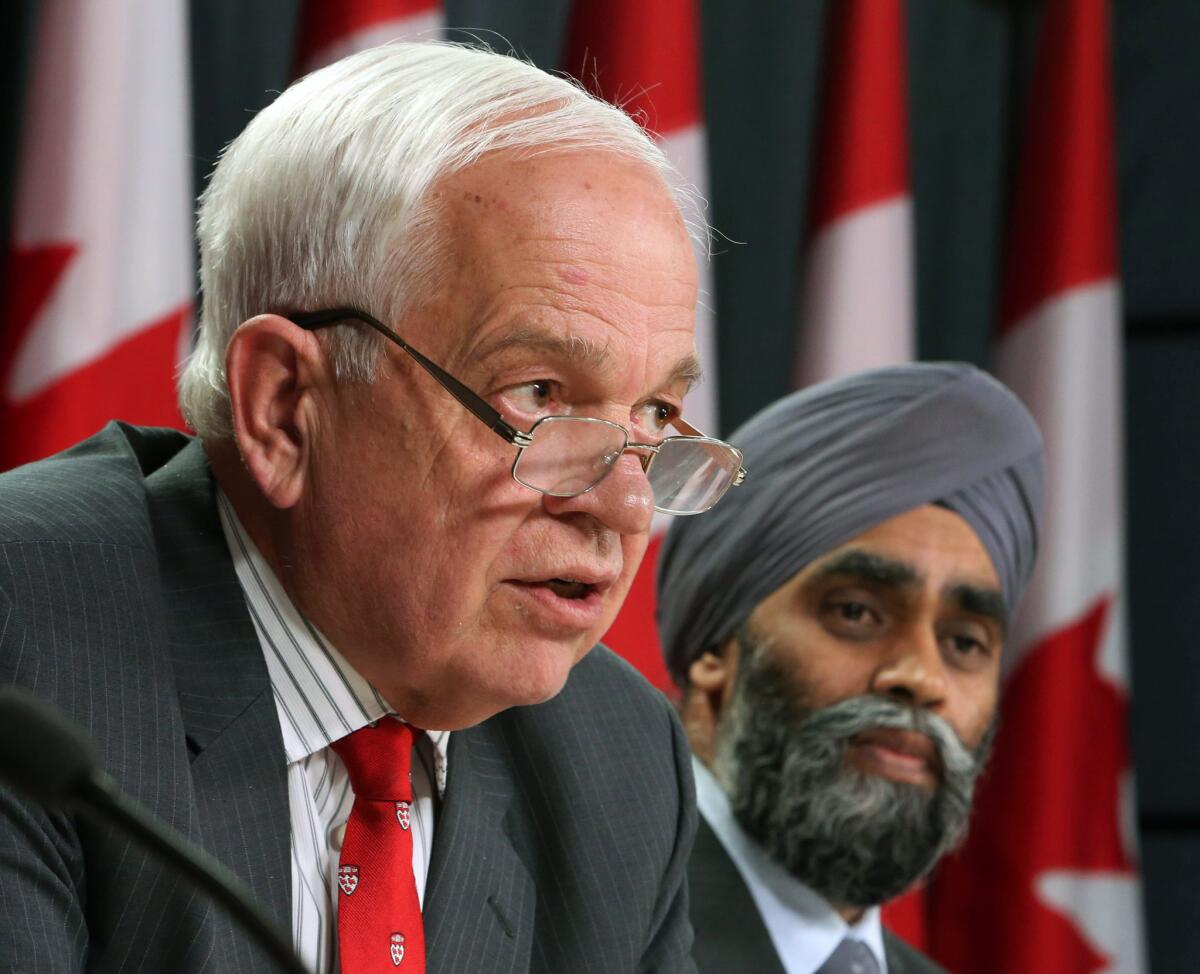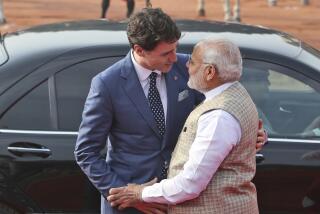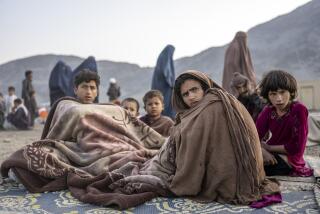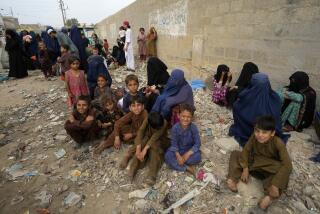Canada plans to resettle 25,000 Syrian refugees by the end of February

In Ontario, Immigration Minister John McCallum, left, and Harjit Sajjan, minister of National Defense, announce Canada’s plan to resettle Syrian refugees.
The Canadian government won’t meet its goal of resettling 25,000 Syrian refugees by year’s end, though thousands will be accepted into the country, officials said Tuesday.
About 10,000 refugees will arrive in Canada by Dec. 31 and an additional 15,000 are expected to be resettled in January and February, according to Prime Minister Justin Trudeau’s ad hoc Cabinet committee on the issue.
Canadians have said that “you have to do it right, and if it takes a little bit longer to do it right, then [we should] take the extra time,” John McCallum, Minister of Immigration, Refugees and Citizenship, told reporters at a news conference. “There are a lot of moving parts here, so we are happy to take a little more time because that allows us to be more prepared.”
Public opinion polls have shown that many Canadians did not agree with the government’s refugee-resettlement plan, with the most recent survey, released over the weekend by Ipsos, indicating that 60% of 1,002 respondents disagreed with the tight timeline and raised security concerns ahead of humanitarian concerns.
Syrian refugees destined for Canada will come from camps in Jordan, Lebanon and Turkey and will have been pre-screened by officials with the Office of
the United Nations High Commissioner for Refugees and the Turkish government.
Canadian immigration and military officials will conduct further medical and security screening overseas before the refugees’ arrival in Canada.
Canadian Public Safety Minister Ralph Goodale said Tuesday that the screening would be intense and involve individual interviews, the collection of biometric data and thorough checks of U.S. and Canadian security databases.
“Before anyone gets on a plane to come to Canada, the security screening will be fully completed, fully, overseas,” he said. “If there is any doubt about an application or an interview or any of the data, the file will simply be put aside and held for further consideration at a later time.”
On Friday, Goodale telephoned U.S. Homeland Security Secretary Jeh Johnson to reassure him that “safety and security” remain Canada’s “highest priority” in welcoming Syrian refugees.
Also last week, the heads of the Royal Canadian Mounted Police, the Canadian Security Intelligence Service and the Canada Border Services Agency insisted that the government’s refugee-resettlement plan would not compromise national security.
However, in an interview with the Canadian Broadcasting Corp. on Tuesday, Trudeau downplayed the security concerns.
“This is about welcoming people who are fleeing terrorism, not bringing terrorism with them,” he told the Toronto radio program Metro Morning.
Refugees coming to Canada will be “low risk” and include families, women at risk, and single men accompanying parents as part of a family or who are identified as vulnerable because they identify as gay, bisexual or transgender.
Canadian Defense Minister Harjit Sajjan said the Royal Canadian Air Force is preparing to fly refugees to Canada every 48 hours if needed, and that the Canadian Armed Forces could provide as many as 6,000 of them with temporary lodging at bases in Canada’s two largest provinces, Ontario and Quebec.
He also noted that the Canadian military has previously helped resettle refugees, including more than 5,000 mostly Muslim Kosovo Albanians in a 1999 airlift, and helped evacuate about 7,000 Ismaili Muslims expelled by Idi Amin in Uganda in 1972.
Michelle Rempel, the immigration, refugee and citizenship critic for Canada’s opposition Conservative Party in the House of Commons, said in a statement that the 25,000 refugee-
resettlement goal Trudeau committed to in the recent national election campaign failed to include a “comprehensive plan” involving such key issues as safety and security.
“We are pleased that Mr. Trudeau has today listened to Canadians and abandoned a timeline that was not workable,” Rempel said.
Tom Mulcair, leader of Canada’s left-of-center New Democratic Party, said in
an interview that his party’s election campaign set a “realistic” target of accepting 10,000 Syrian refugees in Canada by year’s end, which Trudeau criticized as not doing “nearly enough to help refugees.”
But Mulcair said the “campaign is over” and now is the time for politicians of all stripes to work together and address the largest refugee crisis since World War II. “We’re talking about some of the most vulnerable people in the world coming out of one of the most horrible war zones, and we just want the Canadian government to do whatever it can to help these people,” he said.
Most premiers of Canada’s 10 provinces and three territories also support the Trudeau government’s resettlement plan.
Quebec Premier Philippe Couillard, whose French-speaking province is prepared to accept 3,650 Syrian refugees, most privately sponsored, has said that though security is “essential,” it should not become “an excuse to reject refugees.”
Brad Wall, the conservative premier of the province of Saskatchewan, has not been as enthusiastic. Last week, he sent Trudeau a letter asking the prime minister to “suspend” the “date-driven” refugee-resettlement plan and to redouble “screening and security efforts, erring on the side of caution, deliberativeness and discernment in this matter” after the terrorist attacks in Paris this month.
The Canadian government estimates that it will cost as much as $510 million over six years to resettle and support Syrian refugees, 3,089 of whom arrived in Canada between Jan. 1, 2014, and Nov. 3.
Guly is a special correspondent.
ALSO
George Skelton: Governors’ tough talk can’t block refugees
Syria war pulls Russia and Turkey into a risky confrontation
Accept Syrian refugees? State politicians chart a moderate course
More to Read
Start your day right
Sign up for Essential California for news, features and recommendations from the L.A. Times and beyond in your inbox six days a week.
You may occasionally receive promotional content from the Los Angeles Times.






